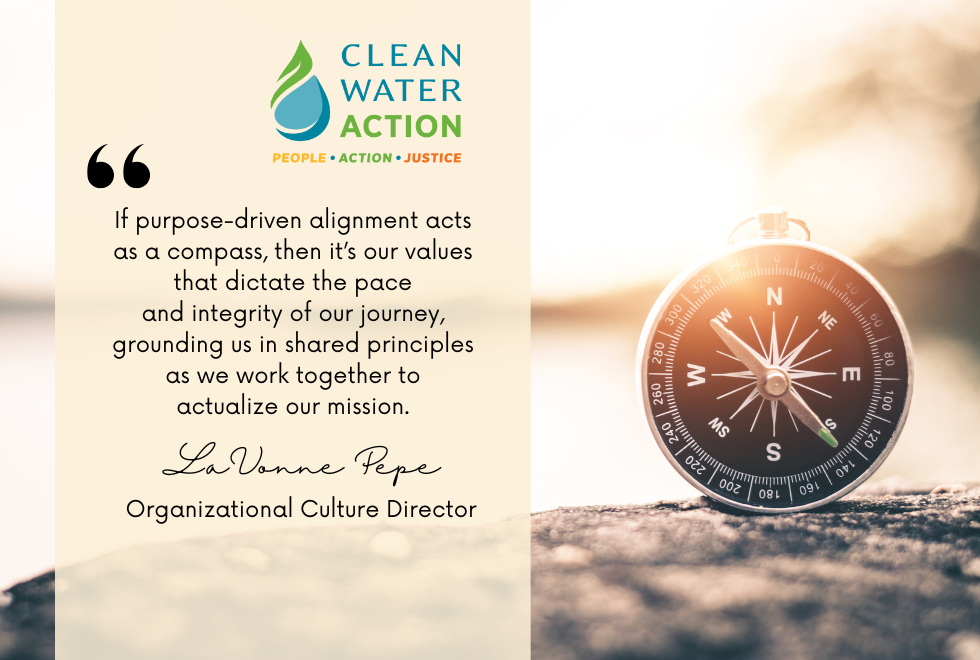
What does it truly mean to create a purpose-driven workplace? It's not just about an inspiring mission statement or showcasing values on a website—it's about making those values come alive in the daily actions, decisions, and relationships that define an organization's culture. Purpose gives direction. In any mission-driven workplace, clarity on why we're here keeps everyone focused and grounded. Without that, assumptions replace alignment, individual goals can overtake collective objectives, and confidence in decision-making can wane. Purpose-driven workplaces not only stay on course; they also nurture creativity, morale, and resilience.
If purpose-driven alignment acts as a compass, then it’s our values that dictate the pace and integrity of our journey, grounding us in shared principles as we work together to actualize our mission. Throughout my career working with mission-driven organizations, I've seen how easy it is to let our values slip into the background while we're busy focusing on the mission. Yet, the real power of purpose shines when we align our values with our daily work. As the first Organizational Culture Director for Clean Water Action and Clean Water Fund, one of the things I’m most excited about is leveraging the opportunity to help Clean Water name their core values and embed them within the infrastructure of every part of our operations.
Aligning Culture with Values
Culture is the unspoken energy that fuels an organization. It's both the explicit policies we set and the quiet expectations we hold of those around us. It influences everything from project priorities to how we communicate. Translating values into actions that strengthen our work culture requires a bit of foresight and a lot of intentionality. To operationalize our values, we first need to clarify and communicate our values openly by having a shared understanding of what our values are. Applying those values means moving beyond saying them and embedding them into our systems, from decision-making frameworks to performance assessments. For example, if "justice" is a core value, partnerships should be evaluated for their alignment with that commitment. If we value "accountability," then our structures should include clear, transparent expectations and support systems for shared responsibility. At the start of new projects, we can align on how our values will shape our approach. This might involve setting intentions related to specific values that guide collaboration throughout the project. At retrospectives, we can reflect on how well we adhered to these values and discuss areas for growth, truly modeling the spirit of comprehensive continuous improvement. Embedding values in the life cycle of a project makes them actionable and reinforces their importance.
Clean Water's Values: Ready to Reflect

At Clean Water, I quickly recognized that its values aren't just about the mission. Yes, the team is passionate about preserving clean water for all and there is an undeniable urgency for how we approach the work, but there's also a powerful legacy of mutual support, advocacy, and connection within the organization. This is a team where colleagues lift each other up and foster a community of respect and care. The values here are deeply entrenched, even if unspoken, and I'm excited to work as a part of this team to articulate and reinforce those values more explicitly.
Aligning our values with daily actions requires ongoing commitment. As Clean Water prepares for the next year, I'm excited to help name, reinforce, and live our values more intentionally. Purpose-driven action isn't just the heart of a thriving workplace—it's the foundation of our mission as an organization that believes in the power of collective action, and the individual contributions that makes democracy work to protect people, to protect our planet, and to ensure equitable access to clean water for all.


